Current Status
Technical Validation – Actively Refining & Debugging – Successfully tested in a live exercise in September 2024, demonstrating its intended functionality to initial stakeholders. While the core features have been validated, ongoing refinements are being made to resolve bugs, enhance stability, and improve user experience before full deployment.
Future Development
Moving Toward Deployment-Ready & Scaling – Enhancing tasking capabilities, customisable forms, and interoperability, while scaling LISA to support up to 100 concurrent users.

Overview
What it is
LISA (Local Incident Services Application) is a web-based crisis and incident management application designed to support real-time decision-making, structured logging, and cross-agency collaboration during emergency incidents. It allows teams to digitally manage incidents, capture critical information, and securely share updates across stakeholders, improving coordination and response times.
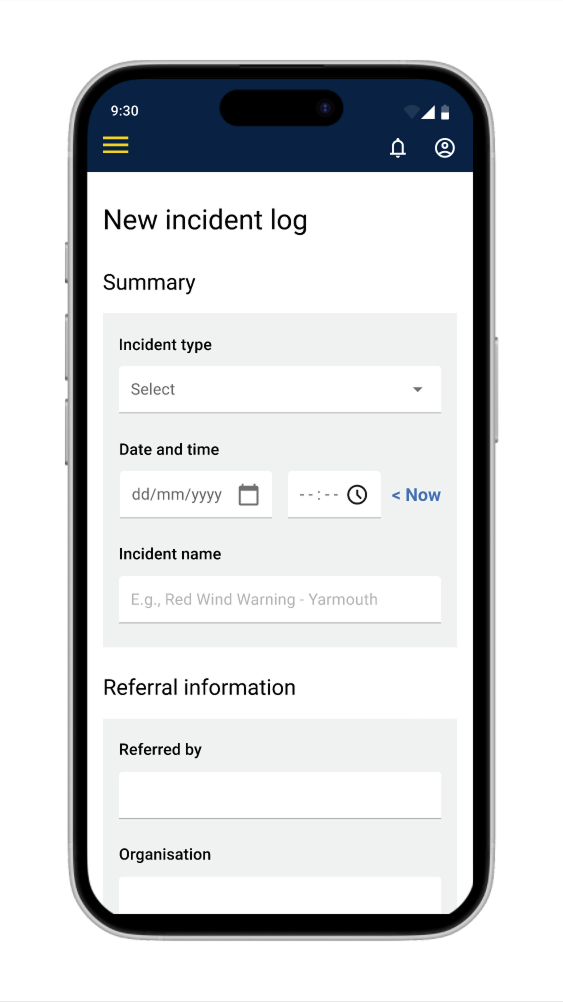
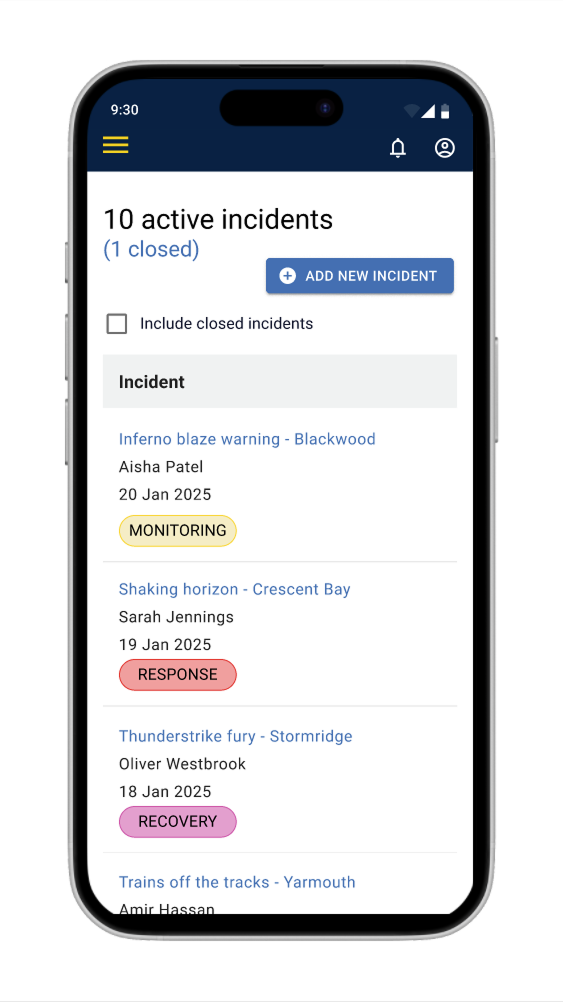
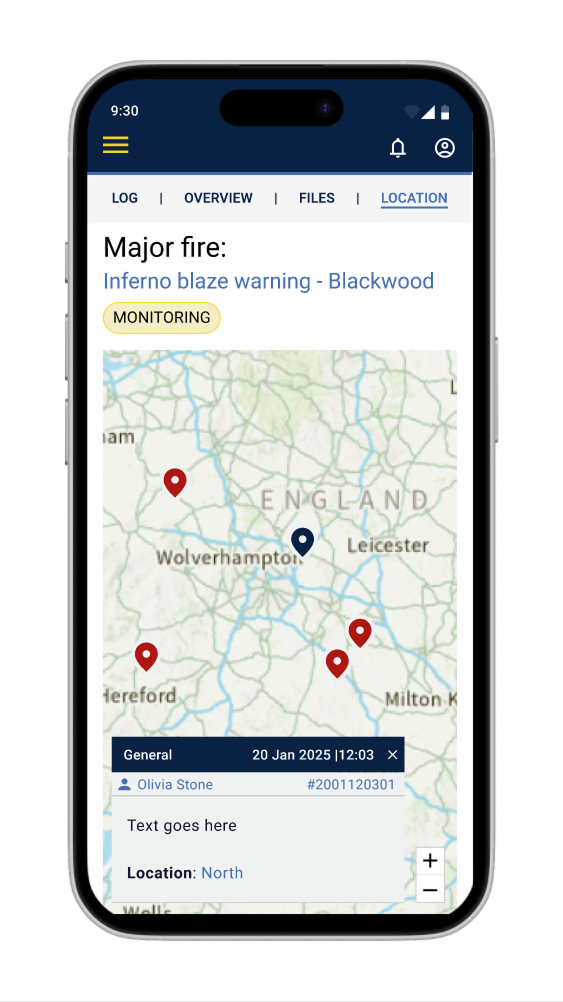
What problem it addresses
Many local resilience teams still rely on paper-based logging and manual information-sharing, leading to delays in communication, inefficiencies in decision-making, and difficulty in post-incident reviews. LISA digitises and streamlines incident logging, ensuring secure, structured, and interoperable data capture, reducing administrative burden, and improving collaboration between emergency responders.
How it contributes to the National Digital Twin vision
LISA tests the ability of National Digital Twin Programme’s (NDTP’s) Integration Architecture (IA) to ingest information from multiple parties in real time to create a structured, sequential, immutable event log where policy requirements around access to sensitive information are automatically applied.
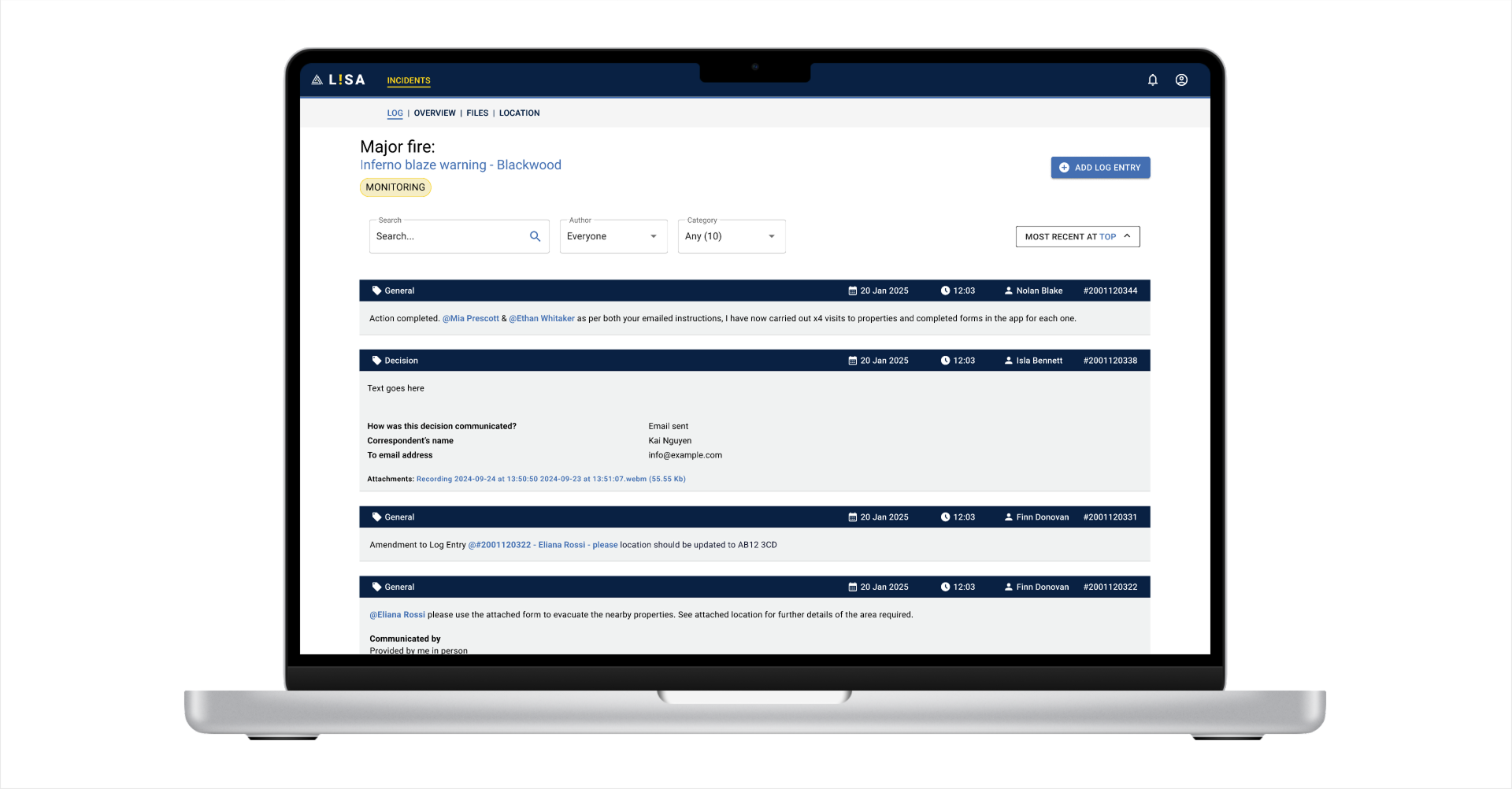

Who we are working with
Lead stakeholders and collaborators
- Isle of Wight Council
- Emergency responders

Why we are doing this
1. Strengthening NDT’s Capabilities
LISA is a key testbed for advancing NDTP’s open-source infrastructure. Through this demonstrator, we are:
- Testing the IA in a real-time, high-stakes environment.
- Expanding the IES to include structured emergency response data.
- Developing APIs for structured logging, event reporting, and multi-agency collaboration.
- Enhancing security and immutability, ensuring that crisis logs cannot be modified retrospectively and policy requirements relating to sensitive information can be automatically applied.
2. Live testing & real-world deployment on the Isle of Wight
In September 2024, we conducted a field exercise with the Isle of Wight Council. This exercise simulated an avian influenza outbreak, testing LISA’s functionality across laptop and mobile devices, with users logging information both from offices and in the field.
During the test, the following features were validated:
- Image upload – Users successfully uploaded and shared photos of the incident.
- Offline mode – Allowed field users to log data even without connectivity, syncing once online.
- Sketching and annotation – Users could draw and annotate over images and maps.
The feedback was overwhelmingly positive, highlighting LISA’s ability to improve situational awareness and facilitate decision-making. However, the exercise also revealed areas for enhancement and further scaling.
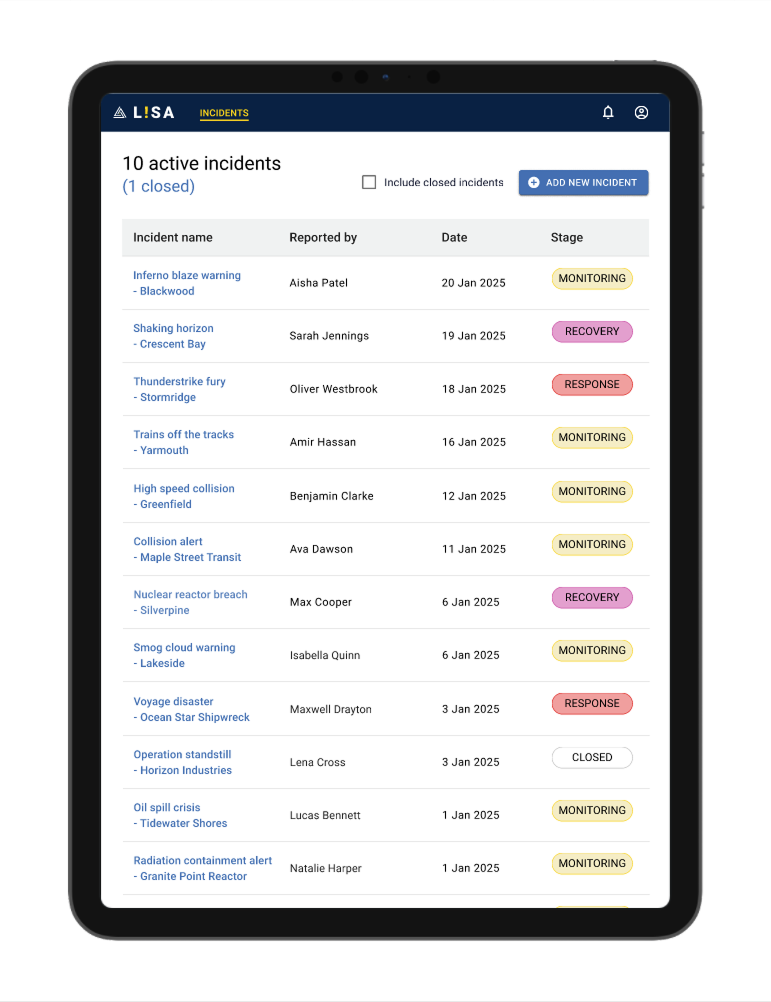
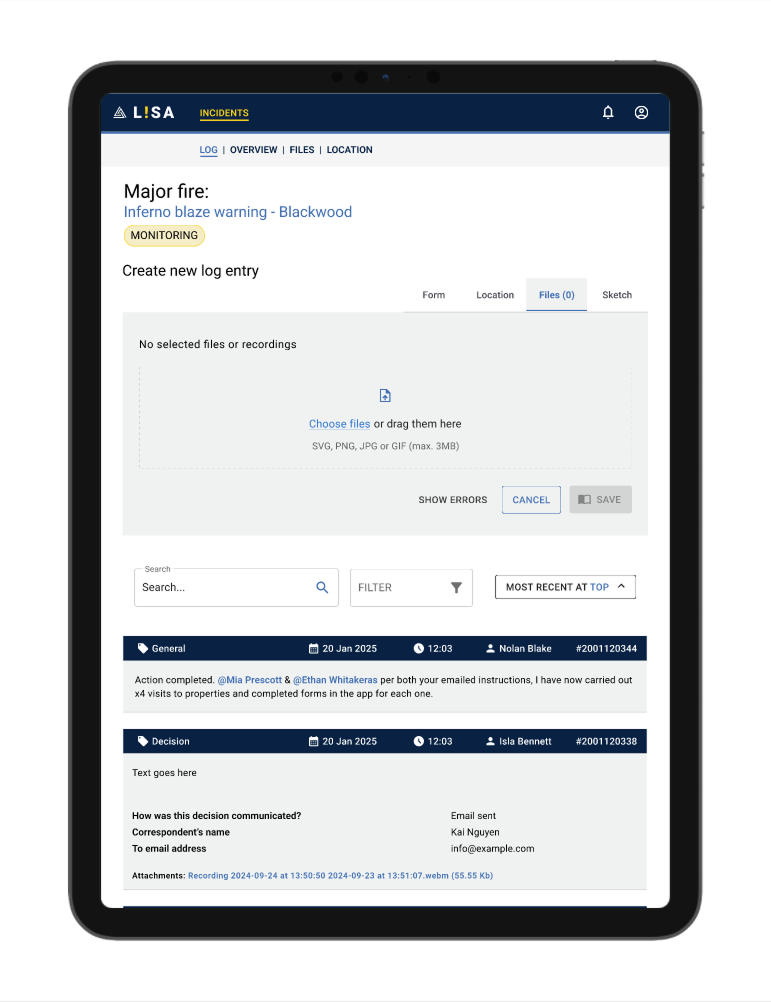

Key Innovations & Next Steps
Following the September 2024 field exercise, two major modules were identified for development in preparation for LISA’s next major test during the Isle of Wight Festival in 2025:
1. Customisable Forms
Users will be able to create and customise forms within LISA, allowing for tailored incident data capture that aligns with established emergency response workflows.
2. Tasking & assignment Module
During testing, many users used LISA as a task management tool, despite it not being originally designed for this purpose. Recognising this unmet need, we are now developing a dedicated tasking module that will:
- Allow users to assign tasks within the app.
- Enable tracking of task progress, completion, and accountability.
- Improve operational efficiency by providing a clear status view of ongoing actions.
3. Scaling for the Isle of Wight Festival 2025
The next phase of testing will focus on:
- Expanding LISA’s scalability to support up to 100 concurrent users.
- Enhancing IA’s ability to handle higher data volumes.
- Ensuring seamless multi-agency collaboration during a large-scale public event.
These developments require modifications to the IA and extensions to the IES ontology, ensuring LISA remains scalable, interoperable, and secure.

Technical Details
Architecture & Frameworks Used
- Built using NDTP’s IA for secure and structured data logging.
- Developed as a cloud-hosted, web-based application, ensuring accessibility across devices.
- Currently utilises a middleware component to ensure data security, immutability, and efficient API interactions.
Data & interoperability considerations
- Supports structured event logging, aligned with IES.
- Designed for offline use, with data synchronisation when connectivity is restored.
- Role-based access control (RBAC) currently governs user permissions, ensuring sensitive information is restricted to authorised users. Future iterations will transition to Attribute-Based Access Control (ABAC), allowing for more granular, context-aware access permissions based on user roles, attributes, and specific incident conditions.
Where to Find the Code:
The application is packaged in one repository:

Get Involved
There are multiple ways to engage with LISA, whether you are part of government, emergency response, academia, or the technical community:
- Collaboration – Government bodies, emergency response teams, and infrastructure operators can contribute data, expertise, or funding to expand LISA’s capabilities or integrate it into wider crisis management frameworks.
- Adoption and testing – Organisations can adopt or adapt LISA for their own needs, ensuring the tool is reused and extended for maximum impact.
- Testing & Feedback – Organisations and individuals can validate use cases, test functionality, and provide feedback to improve usability and effectiveness.
- Knowledge sharing – Contributions to best practices, case studies, and policy recommendations are encouraged to guide future expansion.
If you’re interested in collaborating, adopting, or contributing, get in touch via ndtp@businessandtrade.co.uk or explore the open-source codebase on GitHub.


